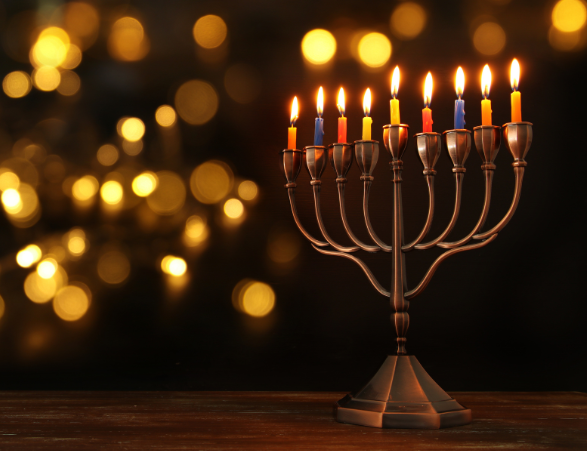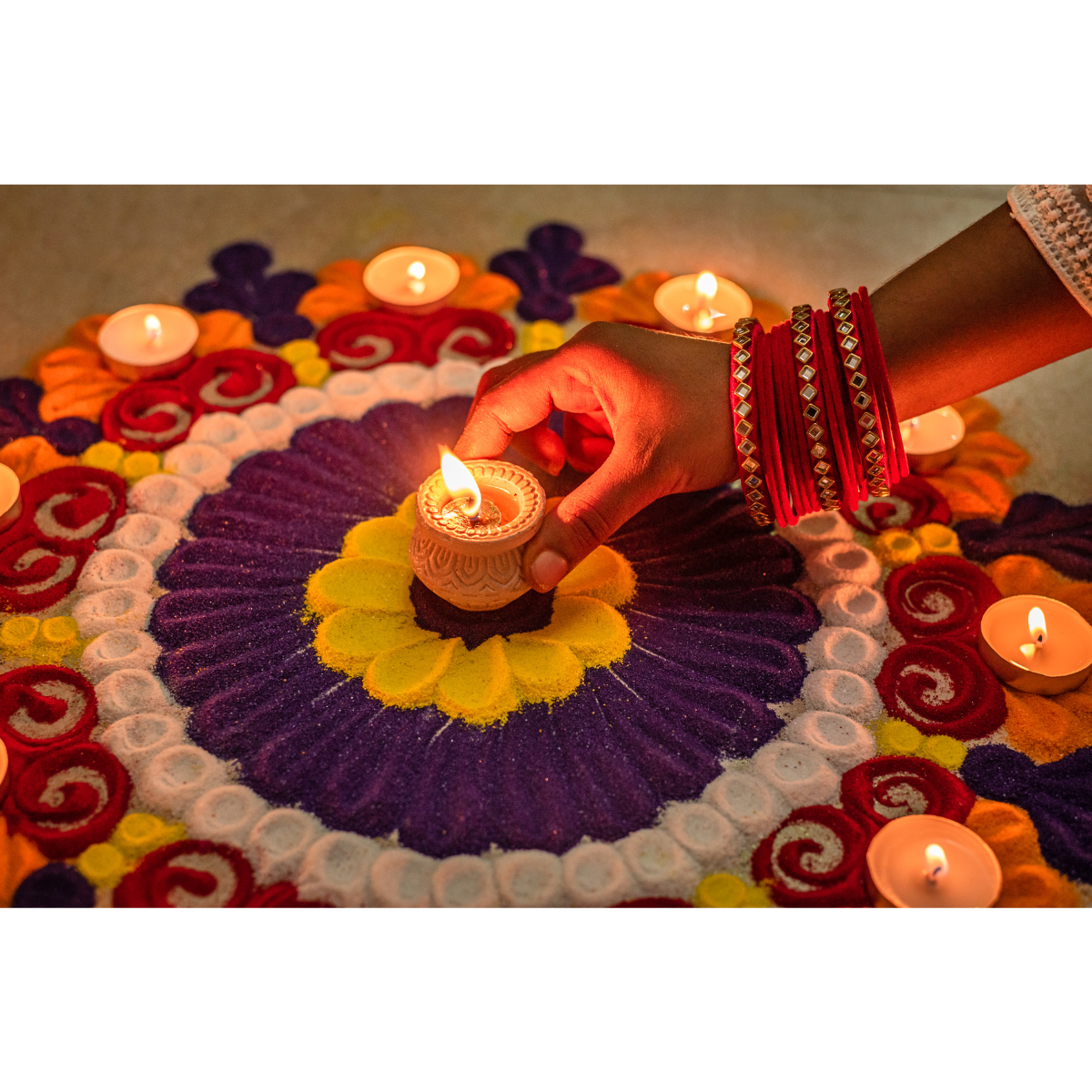
The History and Significance of Hanukkah
Hanukkah (Hebrew for “dedication”) is often called the Festival of Lights. It is a joyous and significant holiday ...

Table of Contents
Diwali, also known as Deepavali, is India’s biggest and most important holiday of the year. Observed by more than a billion people across faiths around the world, this 5-day festival of light brings prayer, feasts, fireworks, and, for some, the beginning of a new year.
The festival gets its name from the row (avali) of clay lamps (deepa) lit outside Indian homes to symbolize the inner light that protects from spiritual darkness.
The festival dates are based on the Hindu lunar calendar, which marks each month by the time it takes the moon to orbit Earth. Diwali begins just before the arrival of a new moon between the Hindu months of Asvina and Kartika – typically in October or November of the Gregorian calendar.
Diwali's historical roots can be traced back over 2,500 years. An important religious festival for Hindus – also observed among Jains, Sikhs, and Buddhists - the festival finds its origins in various ancient Indian traditions, and it is celebrated in different forms across India.
In Hinduism alone (considered the world’s oldest living religion, dating back to the second millennium B.C.), several versions of the Diwali story vary among communities. Sikhs, Jains, and Buddhists, three minority religions in India, have their own Diwali stories, but all of these stories are about the triumph of good over evil.
Diwali is also a celebration of the Hindu goddess of wealth and fortune, Lakshmi. In India’s early society, Diwali coincided with the last harvest before winter, a time to pray for Lakshmi for good fortune. Today, Indian businesses still consider Diwali the first day of the financial new year.
The rituals of Diwali vary by region, but most have in common the abundance of sweets, family gatherings, and the lighting of clay lamps.
Each of the five days has its own significance:
Day 1: On the first day of Diwali, people pray to the goddess Lakshmi, clean their homes, and purchase items made from gold to help bring good fortune.
Day 2: People decorate their homes with clay lamps and create rangolis, designs made on the floor from colored sand, powder, rice, or flower petals.
Day 3: Day three is the most important. On this day, people go to a temple to honor Lakshmi or gather with friends and family for feasts and fireworks. They also light the lamps displayed in their homes.
Day 4: For many, the fourth day of Diwali marks the new year and is a time to exchange gifts and well wishes with friends and family.
Day 5: The final day is typically a day to honor one’s siblings. Traditionally, brothers visit their sisters’ homes on this day, bringing gifts, and in turn, the sisters prepare a feast and pray for their brothers’ protection and well-being.
Over the years, Diwali has become India’s biggest holiday season, rivaling Thanksgiving or Christmas in the United States. Shoppers take advantage of sales, and communities across India and the rest of the world host small fairs. Fireworks are also a major part of the celebrations, with individual families setting off their own fireworks.
Diwali is a festival that has transcended religious and cultural boundaries, finding a place in people's hearts worldwide. It is a time for families to come together, communities to celebrate, and people to reflect on the triumph of light over darkness. The rich history of Diwali continues to be cherished, making it a symbol of hope, prosperity, and unity for all.
How do you celebrate?
This blog post was written by Megan Tully, Marketing Manager.

Hanukkah (Hebrew for “dedication”) is often called the Festival of Lights. It is a joyous and significant holiday ...

Mardi Gras is a vibrant and lively event celebrated worldwide for centuries. But the annual celebration is more than ...

Thanksgiving in the United States Thanksgiving is a beloved holiday in the United States - a time for families and ...
Please fill out the form below for more information or to schedule a consultation.